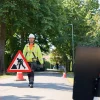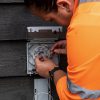Freedom Fibre’s Neil Mcarthur on the Future of the FTTP Altnet Community

The Founder and CEO of UK broadband ISP and fibre optic network builder Freedom Fibre, Neil Mcarthur, discusses the future of the full fibre alternative network (AltNet) community, with five thoughts on Fibre-to-the-Premises (FTTP) broadband.
The following article is a special Guest Editorial for ISPreview.co.uk, which has been written by Neil Mcarthur. The views of this author are their own and may not represent those of this website. Freedom Fibre recently secured a £84m investment boost from infrastructure investor Equitix, alongside a £16m Santander debt facility, and is currently rolling out across the North of England:
1. We have raised the money and started the race
The Altnet community and their investors have raised significant funds to play their part in the UK FTTP roll out. Ofcom and the treasury must be delighted as the funds available to the industry should see the UK well on the way to full fibre coverage by 2030. The appetite to invest and the sums involved with the Altnets has caused Openreach to accelerate its plans or face sharing its lunch.
Advertisement
The treasury too must be very pleased, having to only contributed £5bn (to subsidise the hardest 20% of the UK) to cover the UK with full fibre. Given the economic value that delivers for the economy, let alone the positive impact on the environment, it is a huge win.
Our industry, whilst now considered an essential utility, is a victim of an unfair tax regime, being taxed (VAT 20%) as a luxury, whereas polluting industries such as electricity and gas enjoy a 5% tax rate! Our sector needs to lobby government on this issue, I see a role for INCA here, and I urge anyone who is not engaged to get behind our trade body and support them.
2. The honeymoon period is over
With the money raised, what of the growth and future of our companies? In the main we are ploughing our own furrows, some urban focused, others rural, some are retail ISPs and some wholesale only. The divergence of this enterprising industry is typical of a hot new tech sector that attracts capital and the entrepreneurs to consume it.
However, deep down we and our investors know that divergence has its limits and in time we need to converge and ultimately consolidate the industry. The sooner we accept this and take steps to ensure it happens in an orderly manner, protecting invested capital, the better.
Advertisement
Standards is the big issue we have to get a grip of. Enterprise and creativity is fine, but if we are all to survive and prosper then we must ensure we converge with what and how we supply the market − critically how ISPs are able to consume our services.
3. Full Fibre – the benefits & challenges
The economic consequences are not lost on the treasury, as UK-wide full fibre massively benefits those who live remotely and suffer the most from poor service, enabling them to participate in the economy. A BTOR report estimated the annual economic contribution at over £60bn pa.
What are we going to use full fibre for? We all have our predictions and face the same challenges in explaining it to consumers. The speed, capacity and most importantly the reliability of full fibre will open up many opportunities. If the pandemic has accelerated the move to home working, full fibre facilitates vastly improved delivery of connectivity, cloud access and security, to name a few benefits.
The fact is that we have squeezed the last drops out of the copper networks and the UK needs full fibre. The deployment of fibre to the cabinet in the last decade has been unhelpful, prolonging WLR (Wholesale Line Rental) and legacy circuit switching well beyond its shelf life. To add to the pain, it will survive as SOGEA (Single Order Generic Ethernet Access) at great cost to the ISPs.
Advertisement
The blame for this carbuncle lies back with BT’s cancellation of the initial 21CN project in 2010 which used MSANs not DSLAMs thereby converting voice to IP at the exchange (not to be confused with the IPX project that followed). Hence the need to retain circuit switching. This put back IP voice a decade. Full fibre sorts all this engineering mess out, but not before industry pays the price of the migration from ADSL via FTTC and SOGEA before arriving at the inevitable − end to end Full Fibre.
4. Wholesale vs vertical integrated
Consumers love brands and tend to buy from them. Yet Altnets need increased penetration whilst establishing a successful retail ISP within what is essentially an engineering-focused company. That is a big ask and beyond most of us to do both.
The cost of FTTP is essentially a long-term infrastructure investment which ultimately requires a high volume of customers to achieve the required revenues to enable the investment to work and deliver investors with a return on capital.
Volume currently is only achieved through the large brands, BT, Sky, Talk Talk, Virgin and now Vodaphone. To trade with these requires a wholesale agreement and an ability to connect into their systems. It takes time and costs money to interface between network providers and the larger ISPs, so only a relatively small number will be able to deal directly. Momentum is building towards inevitable consolidation and aggregation is increasingly likely as investors seek to deliver target yields.
5. Regulation
Returning to the part our regulator plays in our industry. The UK has done a sound job of regulation. I support competition with regulation, but even Ofcom has its moments. I mentioned earlier how they must be giddy about the success of private capital flowing into full fibre and the pressure this has put on BTOR to increase investment and accelerate rollout before we nibble away at what they consider their market.
PIA (Openreach’s product allowing other ISPs access to its poles and ducts) is a game changer and economically sensible, but I have two major reservations. Firstly, Ofcom handed BTOR a massive slice of area three, some 3m homes with inadequate service, and the bill has been passed to ISPs and ultimately consumers.
Many Altnets had build plans in these areas and companies like ours sunk money into this space only to see BTOR get handed the cash. Coincidentally, the government (DCMS) pulled funding for many of these areas. This was no coincidence. Altnets were well and truly mugged here, along with the ISPs and the consumers.
Secondly, Fibre to the Cabinet − how the ASA (Advertising Standards Authority) and Ofcom allowed BTOR to call FTTC ‘fibre’ in the first place. I complained at the time, pointing out ADSL2+ at 300m delivers the same as FTTC over 1km and that is not called ‘fibre.’ This remains an issue and I remain surprised the ASA and Ofcom let this continue. It is extremely misleading to consumers. I know City Fibre had a go but It should remain high on the Altnet sector’s list to address, as it is hugely confusing to consumers and is having a huge impact on take up of FTTP.
Neil is the Founder and CEO of UK broadband ISP and full fibre network builder Freedom Fibre.
Find me on LinkedIn
« Virgin Media O2 UK Allegedly Offer £3bn for TalkTalk Broadband Merger






















































Comments are closed